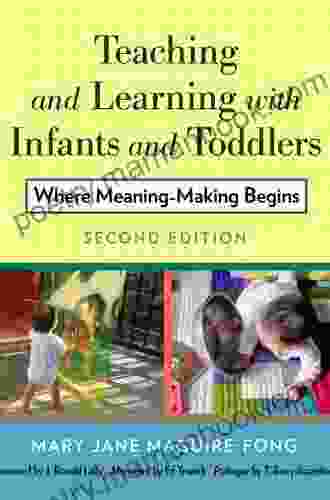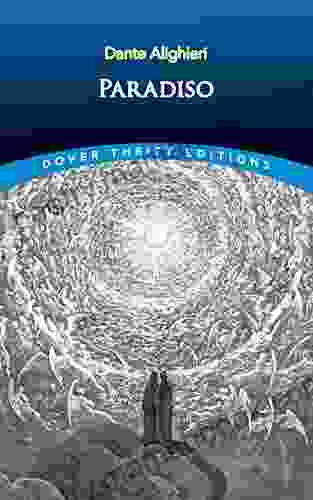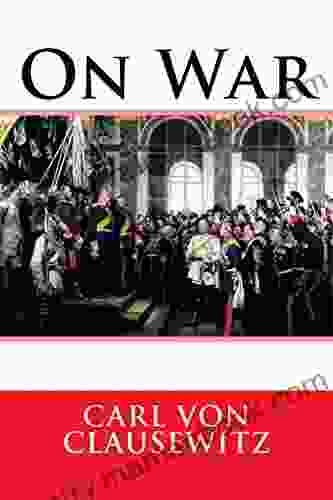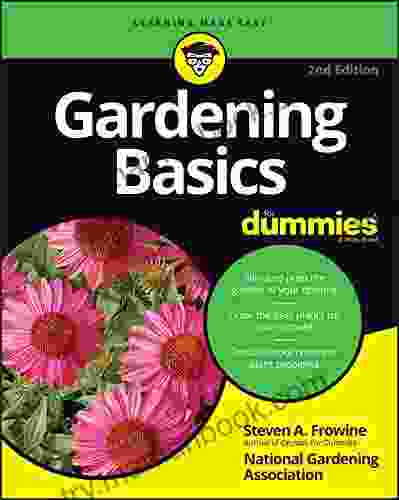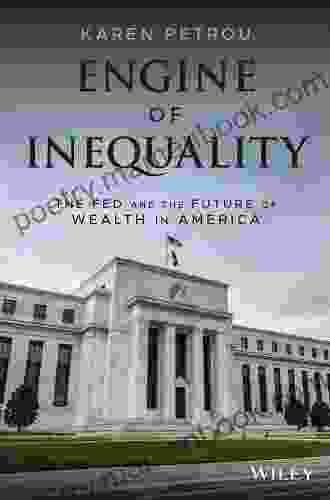Where Meaning Making Begins: Exploring the Origins and Evolution of Human Cognition

What is the nature of human cognition? How do we make sense of the world around us? What are the origins of our capacity for language, reason, and creativity?
These are some of the fundamental questions that have occupied philosophers, psychologists, and cognitive scientists for centuries. In recent years, there has been growing interest in the role of meaning making in human cognition. Meaning making is the process of creating meaning from experience. It is a fundamental human activity that allows us to understand our world and our place in it.
4.6 out of 5
| Language | : | English |
| File size | : | 41756 KB |
| Text-to-Speech | : | Enabled |
| Screen Reader | : | Supported |
| Enhanced typesetting | : | Enabled |
| Word Wise | : | Enabled |
| Print length | : | 192 pages |
Meaning making begins in infancy. As babies interact with their environment, they begin to develop a sense of what things mean. They learn that certain objects are associated with certain actions or events. For example, they learn that a bottle means food, and a rattle means play.
As children grow, they continue to develop their capacity for meaning making. They learn to use language to express their thoughts and feelings. They develop a sense of self and a sense of their place in the world. They begin to understand the importance of relationships and community.
Meaning making is a lifelong process. It continues throughout adulthood as we learn new things, experience new events, and develop new relationships. Meaning making helps us to make sense of our lives and to find our place in the world.
There are many different ways to make meaning. Some people find meaning in their work, while others find it in their relationships or their hobbies. Some people find meaning in religion, while others find it in nature or art.
There is no right or wrong way to make meaning. The important thing is that we find meaning in our lives. Meaning making is essential for our well-being. It gives us a sense of purpose and direction. It helps us to cope with difficult times and to appreciate the good times.
Meaning making is a complex and fascinating process. It is a process that is essential for our understanding of ourselves and our world. By studying meaning making, we can gain a deeper understanding of human nature and the human condition.
The Origins of Meaning Making
The origins of meaning making are rooted in our evolutionary history. As humans evolved, we developed a unique capacity for language, reason, and creativity. These capacities allowed us to create complex social structures, to develop new technologies, and to explore the world around us.
Language is a powerful tool for meaning making. It allows us to communicate our thoughts and feelings to others. It also allows us to create shared meanings, which are essential for social cooperation.
Reason is another important tool for meaning making. It allows us to think critically about the world around us and to make decisions based on evidence and logic.
Creativity is a third important tool for meaning making. It allows us to generate new ideas and to find new ways of solving problems.
These three capacities—language, reason, and creativity—are essential for meaning making. They allow us to create meaning from our experiences and to share that meaning with others.
The Evolution of Meaning Making
Meaning making has evolved over time as humans have evolved. In the early stages of human evolution, meaning making was likely limited to basic survival needs. Humans needed to find food, shelter, and water in order to survive. They also needed to cooperate with others in order to protect themselves from predators and to raise their young.
As humans evolved, their capacity for meaning making expanded. They began to develop more complex social structures and to create new technologies. They also began to explore the world around them and to develop new ideas about their place in the universe.
The evolution of meaning making has been a gradual process. It has been driven by a number of factors, including the development of language, reason, and creativity. It has also been driven by the need to adapt to new environmental and social challenges.
The Future of Meaning Making
The future of meaning making is uncertain. However, it is likely that meaning making will continue to evolve as humans continue to evolve. As we face new challenges and opportunities, we will need to find new ways to make meaning of our experiences.
One of the most pressing challenges facing humanity today is the climate crisis. The climate crisis is a threat to our planet and to our way of life. It is also a threat to our meaning making. As the climate crisis worsens, we will need to find new ways to make meaning of our lives and our world.
The climate crisis is not the only challenge facing humanity. We also face challenges such as poverty, inequality, and conflict. These challenges are complex and there are no easy solutions. However, we cannot afford to give up hope. We must continue to make meaning of our lives and our world, even in the face of adversity.
The future of meaning making is uncertain. However, one thing is for sure: meaning making is essential for human well-being. It gives us a sense of purpose and direction. It helps us to cope with difficult times and to appreciate the good times. It is a process that is essential for our understanding of ourselves and our world.
4.6 out of 5
| Language | : | English |
| File size | : | 41756 KB |
| Text-to-Speech | : | Enabled |
| Screen Reader | : | Supported |
| Enhanced typesetting | : | Enabled |
| Word Wise | : | Enabled |
| Print length | : | 192 pages |
Do you want to contribute by writing guest posts on this blog?
Please contact us and send us a resume of previous articles that you have written.
 Top Book
Top Book Novel
Novel Fiction
Fiction Nonfiction
Nonfiction Literature
Literature Paperback
Paperback Hardcover
Hardcover E-book
E-book Audiobook
Audiobook Bestseller
Bestseller Classic
Classic Mystery
Mystery Thriller
Thriller Romance
Romance Fantasy
Fantasy Science Fiction
Science Fiction Biography
Biography Memoir
Memoir Autobiography
Autobiography Poetry
Poetry Drama
Drama Historical Fiction
Historical Fiction Self-help
Self-help Young Adult
Young Adult Childrens Books
Childrens Books Graphic Novel
Graphic Novel Anthology
Anthology Series
Series Encyclopedia
Encyclopedia Reference
Reference Guidebook
Guidebook Textbook
Textbook Workbook
Workbook Journal
Journal Diary
Diary Manuscript
Manuscript Folio
Folio Pulp Fiction
Pulp Fiction Short Stories
Short Stories Fairy Tales
Fairy Tales Fables
Fables Mythology
Mythology Philosophy
Philosophy Religion
Religion Spirituality
Spirituality Essays
Essays Critique
Critique Commentary
Commentary Glossary
Glossary Bibliography
Bibliography Index
Index Table of Contents
Table of Contents Preface
Preface Introduction
Introduction Foreword
Foreword Afterword
Afterword Appendices
Appendices Annotations
Annotations Footnotes
Footnotes Epilogue
Epilogue Prologue
Prologue Ted Boone
Ted Boone N E Davenport
N E Davenport Andrea Bartz
Andrea Bartz Kate Stephens
Kate Stephens Eva Chance
Eva Chance Leo Fontanarosa
Leo Fontanarosa Bernadette Banner
Bernadette Banner Georgina Herrera
Georgina Herrera Martha Bechtel
Martha Bechtel Carl Von Clausewitz
Carl Von Clausewitz Gopal Parajuli
Gopal Parajuli Elizabeth Beacon
Elizabeth Beacon Carol Gray
Carol Gray Cinderella Celeste
Cinderella Celeste Margaret Drabble
Margaret Drabble John Bradley
John Bradley Ava Benton
Ava Benton April Falcon Doss
April Falcon Doss Sean Slade
Sean Slade Katie Rodante
Katie Rodante
Light bulbAdvertise smarter! Our strategic ad space ensures maximum exposure. Reserve your spot today!
 Rodney ParkerFollow ·18.4k
Rodney ParkerFollow ·18.4k Lawrence BellFollow ·11.4k
Lawrence BellFollow ·11.4k Curtis StewartFollow ·6.1k
Curtis StewartFollow ·6.1k Jeffrey HayesFollow ·10.4k
Jeffrey HayesFollow ·10.4k Theo CoxFollow ·17.5k
Theo CoxFollow ·17.5k Tyler NelsonFollow ·11.3k
Tyler NelsonFollow ·11.3k José SaramagoFollow ·4.3k
José SaramagoFollow ·4.3k August HayesFollow ·18.5k
August HayesFollow ·18.5k

 Patrick Hayes
Patrick HayesDeath on Stage: Euphemia Martins Mystery 16
Synopsis In the...

 Benji Powell
Benji Powell1001 Best Baking Recipes Of All Time
Baking is a fun and...

 Terry Bell
Terry BellDestined War of the Covens: A Supernatural Saga of Power,...
Welcome to the...
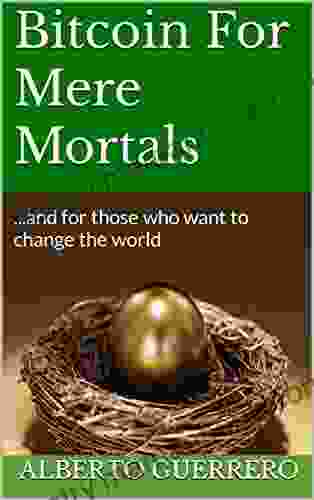
 Mark Twain
Mark TwainBitcoin For Mere Mortals: A Comprehensive Guide for...
Bitcoin is a...

 Dennis Hayes
Dennis HayesThe Best Budget Gaming PC 2024: Build the Ultimate Gaming...
Are you looking to build the best budget...
4.6 out of 5
| Language | : | English |
| File size | : | 41756 KB |
| Text-to-Speech | : | Enabled |
| Screen Reader | : | Supported |
| Enhanced typesetting | : | Enabled |
| Word Wise | : | Enabled |
| Print length | : | 192 pages |


